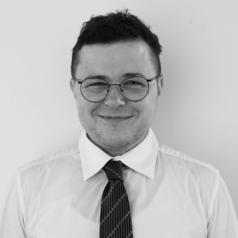
Art Cotterell
Research Associate, School of Regulation and Global Governance, Australian National University
Art Cotterell is a researcher, policy adviser and lawyer.
Art joined the School of Regulation and Global Governance (RegNet) at the Australian National University (ANU) in late 2023 as a Research Associate, and is a Research Affiliate with the Australian Centre for Space Governance.
Prior to joining academia, Art was an executive level advisor on regulatory reform within Australian Government central agencies, and previously worked in international policy and cooperation on intellectual property (IP).
Art’s research is on regulating emerging technologies, with a focus on balancing public and private interests and using technology as a basis for international cooperation. Art is completing their PhD on international outer space and IP law at The University of Adelaide.
Less ![]()
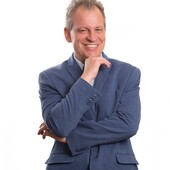
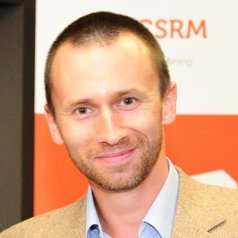
Artem Golev
Postdoctoral Research Fellow, Sustainable Minerals Institute, The University of Queensland
Less ![]()
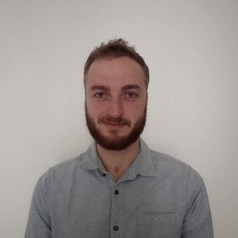
Arthur Braun
Psychologue clinicien, doctorant en psychologie clinique, Université de Lorraine
Doctorant à l'Université de Lorraine
Psychologue clinicien, psychothérapeute au Centre Médico Psychologique pour adolescents d’Epinal
Less ![]()
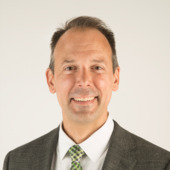
Arthur Daemmrich
Professor of Practice in the School for the Future of Innovation in Society, Arizona State University
Less ![]()
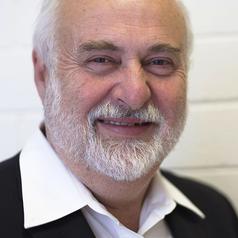
Arthur Georges
Distinguished Professor, Centre for Conservation and Ecology Genetics, University of Canberra
Professor Arthur Georges is an ecologist and herpetologist whose research interests lie in the evolution, ecology and systematics of Australian reptiles. A fundamental interest in these fascinating animals takes him into the field and the laboratory to learn more of their biology and to apply what he has learned in solving contemporary challenges for their conservation.
Less ![]()
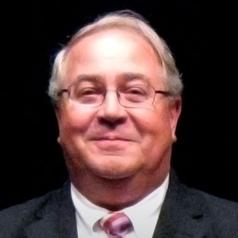
Arthur Gottschalk
Professor of Music, Rice University
A man whose music is described as “infectious, loud, and fun,” (Gramophone Magazine) and “fascinatingly strange,” (BBC Music Magazine) award-winning composer Arthur Gottschalk is Professor of Music Composition at Rice University’s Shepherd School of Music, where he founded and directed the school’s electronic music laboratories until 2002 and chaired the composition and theory department for 15 years. He was given the Meritorious Service Award by the Association of Rice Alumni in 2016, and in 2023 he was given the Presidential Award for Mentoring.
Gottschalk’s early work as a studio musician led to his co-founding of Modern Music Ventures, Inc., a company which held a recording studio complex, a record production division, four publishing firms, and an artist management division, and for whom he produced records for the PolyGram and Capitol labels, among others. Still conducting occasional work as an expert witness and forensic musicologist in music business trials, Gottschalk serves as a judge for many prominent competitions, including the Marvin Hamlisch International Music Award, the Cintas Foundations Awards, the McKnight Fellowships, the Grawemeyer Award, and the Piazzola International Music Competition, among others.
Gottschalk is a recipient of the Charles Ives Prize of the American Academy of Arts and Letters, annual ASCAP Awards since 1980, and has been a Composer-in-Residence at the famed Columbia/Princeton Electronic Music Center, the Piccolo Spoleto Festival, and a Visiting Artist at the American Academy in Rome. He received the Gold Medal and Record of the Year in Music Composition from the Global Music Awards, for his Requiem: For the Living, and was honored with a prestigious Bogliasco Fellowship, as well as the First Prize of the Concorso Internazionale di Composizione Originale of Corciano, Italy for his Concerto for Violin and Symphonic Winds. The Association of Rice Alumni honored him with their Meritorious Service Award, the highest honor given to a non-graduate of Rice University.
In 2018, Gottschalk’s music was presented at Carnegie Hall by a group of Italian virtuosi; he was featured composer at the Thailand International Festival and was a Fellow at The MacDowell Colony. He was a featured composer at the 2019 China-ASEAN Festival in Nanning, China and guest clinician and composer for the 2019 International Trombone Festival. His work for baritone soloist, choir, and orchestra, Tebe Boga, was premiered in 2020 in Carnegie Hall’s Stern Auditorium. With his catalog now containing over two hundred compositions, his music is regularly performed domestically and overseas, with over 45 recordings on such labels as Navona, Crystal, Naxos, Amirani (Italy), and RMN Classics (United Kingdom).
His orchestral works have been performed by the symphony orchestras of Charleston, New Jersey, Vienna, Bratislava, Galicia (Spain), Fargo-Moorehead, Indianapolis, Houston, Pacific, Atlanta, Thailand, Moscow, St. Petersburg, Guangxi (China), and more. His music is published by Subito Music, Shawnee Press, European American Music Distributors, the International Horn Society, Potenza Music, SMP Press, Alea Publishing, TrevCo Music, The Spectrum Press, and Delage Music (France).
Now entering its second edition, Gottschalk’s book, Functional Hearing, is published by Routledge Press, a division of Taylor & Francis. He was a student of renowned American composers William Bolcom, Ross Lee Finney, and Leslie Bassett, and studied with Mario Davidovsky and Aaron Copland. Gottschalk explores the interstices between popular and art music, between the sacred and profane.
Less ![]()
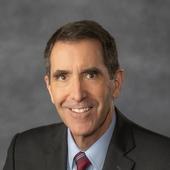
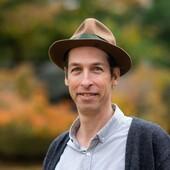
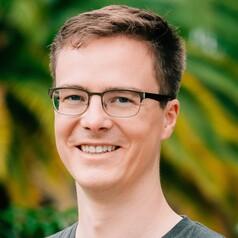
Arthur Wyns
Honorary fellow, Melbourne Climate Futures, Melbourne School of Population and Global Health, The University of Melbourne
Arthur Wyns is a biologist and climate change researcher, and an Honorary fellow at Melbourne Climate Futures. He is the climate change and health advisor to the COP28 presidency. Since 2019, Arthur has been a climate change advisor to the World Health Organization.
Less ![]()
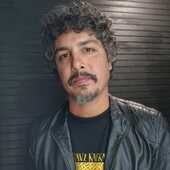
Arthur Coelho Bezerra
Professor titular, Instituto Brasileiro de Informação em Ciência e Tecnologia (Ibict)
Less ![]()
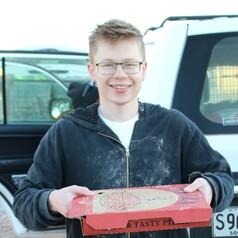
Arthur Immanuel Crichton
PhD candidate, Flinders University
From 2020, I have been enrolled as a PhD candidate at Flinders University, South Australia.
Less ![]()
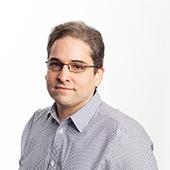
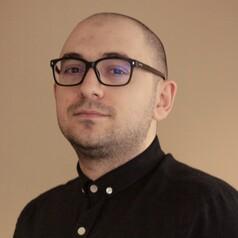
Artur Semeyutin
Senior Lecturer in Economics, University of Huddersfield
Artur joined Huddersfield Business School in December 2020 as a Lecturer in Economics. He obtained his MSc and PhD in Economics from the University of Huddersfield and had worked as a Lecturer in Economics at Coventry Business School before returning to the University of Huddersfield.
Artur's research interests are multidisciplinary and currently span high-frequency financial data, identification of systematic and market specific risks and their impact on investor’s decisions as well as interconnectedness of financial markets.
Less ![]()
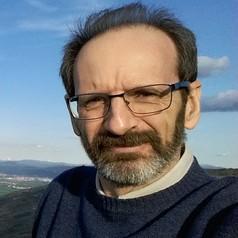
Arturo H. Ariño
Catedrático de Ecología, investigador del Instituto de Biodiversidad y Medioambiente (BIOMA) y responsable de investigación del Museo de Ciencias, Universidad de Navarra
Profesor de Ecología y Ciencia de Datos en la Universidad de Navarra y tutor en Ciencias Ambientales en la UNED. Responsable de investigación del Museo de Ciencias en la Universidad de Navarra e investigador en el Instituto de Biodiversidad y Medioambiente (BIOMA) en el área de medio ambiente y ecología. Sus proyectos recientes incluyen el análisis de las pautas globales de biodiversidad, análisis de la calidad del aire en alta resolución, y movilización y distribución de datos de historia natural. Miembro de varios comités y consorcios internacionales de investigación.
Less ![]()
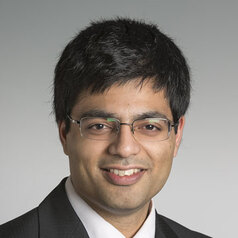
Arun Advani
Associate Professor in Economics, University of Warwick
I am an Associate Professor in the Economics Department at the University of Warwick. I am also a Research Fellow at the Institute for Fiscal Studies, a Visiting Fellow at the International Inequalities Institute, Research Associate of the CAGE Research Centre, CESifo Research Affiliate, and Inequalities theme leader at the Warwick Brain Behaviour and Society GRP. From 2020-22 (creation to abolition) I was a member of the Department for Education Skills and Productivity Board.
I study issues of inequality, tax compliance, and tax design, with a focus on those with high incomes or wealth. I am a Commissioner at the Wealth Tax Commission. I also work on issues of environmental taxation, economic development, migration, and tax in low- and middle-income countries.
I am co-chair of the Discover Economics campaign, aiming to increase the diversity of people who study and work in economics. I'm also an Associate Editor at Fiscal Studies, and on the Editorial Board of the Economics Observatory.
Less ![]()
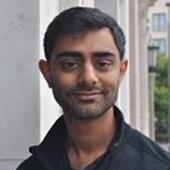
Arun Durvasula
Assistant Professor of Population and Public Health Sciences, University of Southern California
Less ![]()
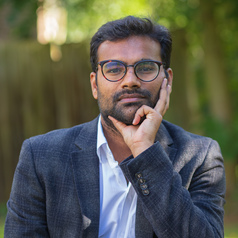
Arun Kumar
I am a historian of modern South Asia with expertise in the social-economic and colonial history of modern India. I write about working-class experiences, desires, and dreams, history of the night, letter-writing, education, and labour market.
Less ![]()
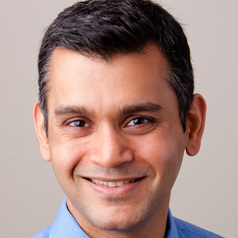
Arun Vishwanath
Dr. Vishwanath studies the “people problem” of cyber security.
His research focuses on improving individual, organizational, and national resilience to cyber attacks by focusing on the weakest links in cyber security—all of us Internet users.
His particular interest is in understanding why organizational insiders willingly exfiltrate sensitive organizational data; why people become unintentional insiders by falling prey to social engineering attacks that come-in through email and social media; and on ways we can harness this understanding to secure cyber space. He also examines how various groups–-criminal syndicates, terrorist networks, hacktivists–-utilize cyber space to commit crime, spread mis-information, recruit operatives, and radicalize others.
Dr. Vishwanath’s research on improving cyber resilience against online social engineering has been funded by the National Science Foundation. He has written and published over two-dozen articles on technology users and cyber security issues and my research has been presented to principals at national security and law enforcement agencies around the world. His research has also been featured on CNN, USA Today, Bloomberg Business Week, Consumer Reports and hundreds of other national and international news outlets.
Less ![]()
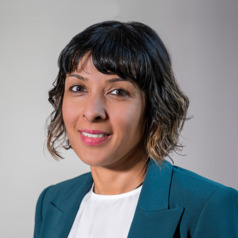
Aruna Sathanapally
Chief Executive, Grattan Institute, Grattan Institute
Dr Aruna Sathanapally joined Grattan Institute as CEO in February 2024. She heads a team of leading policy thinkers, researching and advocating policy to improve the lives of Australians. A former NSW barrister and senior public servant, Aruna has worked on the design of public institutions, economic policy, and evidence-based public policy and regulation for close to twenty years.
Before joining Grattan, Aruna worked for the NSW Treasury for over five years, where she headed up analysis and advice across the macroeconomy division, state-owned corporations, state and commonwealth revenue, and health and justice reform. She led the 2021 NSW Intergenerational Report and led the economic analysis for the 2022 Women’s Economic Opportunities Review.
Aruna previously practised as a senior lawyer in the Civil Regulation group at the Australian Government Solicitor and then as a barrister at 12 Wentworth Selborne Chambers, specialising in cases involving complex economic evidence. Prior to returning to Australia 11 years ago, Aruna worked at McKinsey & Company’s London office with a range of private and public sector clients.
She holds arts (economics and politics) and law degrees from UNSW, where she graduated with the University Medal in Law, and two masters degrees in law and a doctorate from the University of Oxford, where she studied as a Menzies Scholar and John Monash Scholar. She has published internationally in the field of constitutional design and human rights and was appointed in 2015 as external legal adviser to the Parliamentary Joint Committee of Human Rights.
Less ![]()
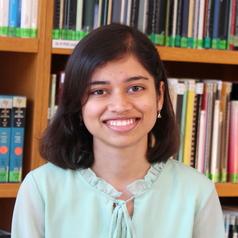
Arunima Dutta
PhD Candidate at the Research Department Fundamental Physics in Radio Astronomy, Max Planck Institute for Radio Astronomy
I am a PhD candidate at the Max Planck Institute for Radio Astronomy in Bonn, passionate about pulsars and neutron stars.
As a part of the Fundamental Physics in Radio Astronomy group, my work focuses on the study of pulsars in globular clusters with the MeerKAT radio telescope. This includes the long-term monitoring of pulsars in relativistic systems to study their properties and evolutionary scenarios.
I am also a part of the Transients and Pulsars with MeerKAT (TRAPUM) collaboration.
Less ![]()
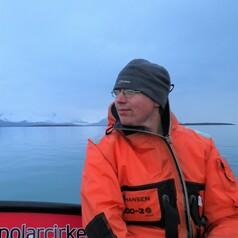
Arwyn Edwards
Reader in Biology, Department of Life Sciences, Aberystwyth University
I'm a microbiologist exploring the life of microbes in Earth's coldest regions. As a Reader in Biosciences at Aberystwyth University in Wales and a Professor II in Arctic Microbiology at the University Centre in Svalbard (UNIS) I've had the privilege of visiting the Arctic for nearly 20 years and have seen how the Arctic and its ecosystems are already changing quickly as the climate warms.
Less ![]()
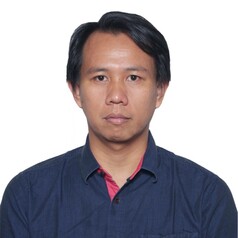
Ary Hermawan
Graduate Researcher, The University of Melbourne
Ary is a PhD student at the University of Melbourne's Asia Institute and a contributing editor for the English edition of Project Multatuli. He is also a former managing editor of The Jakarta Post daily and former deputy director of Amnesty International Indonesia.
Less ![]()
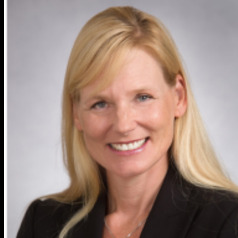
Åsa Gustafsson
Professor of Pharmacy and Pharmaceutical Sciences, University of California, San Diego
Dr. Gustafsson is interested in understanding the molecular pathways that regulate the life and death of cardiac myocytes. The occurrence of cardiovascular disease increases with advancing age and intrinsic alterations in aging cardiac myocytes are a major contributor to the underlying pathogenesis. In particular, a decline in mitochondrial function is considered to play a key role in the increased susceptibility to disease. In the heart, the primary function of mitochondria is to meet the high energy demand of the beating myocytes by providing ATP through oxidative phosphorylation. Mitochondrial dysfunction and activation of cell death pathways are common occurrences in cardiovascular disease and contributes to the development of heart failure. Dr. Gustafsson uses genetic, cell and molecular biology approaches, mouse models, and cutting-edge 2D/3D imaging techniques to study the signaling pathways involved in regulating mitochondrial structure, function, and turnover in cells and heart. Specifically, Dr. Gustafsson's research is examining how the E3 ubiquitin ligase Parkin regulates removal of dysfunctional mitochondria in cells; and b) determining the molecular mechanisms by which BCL-2 family proteins regulate mitochondrial function, morphology and turnover in cells.
Less ![]()
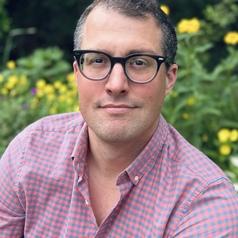
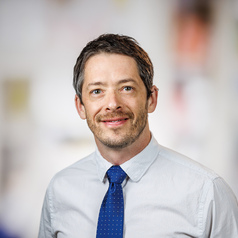
Asa Tapley
Acting Instructor, University of Washington; Research Associate, Fred Hutch Cancer Center); Honorary Senior Lecturer (University of Cape Town), University of Washington
Dr Tapley is an infectious disease sub-specialist physician and researcher at the University of Washington and Fred Hutch Cancer Center. He has an extensive background in clinical and lab-based tuberculosis (TB) research. More recently Dr Tapley has also been involved in vaccine clinical trials in sub-Saharan Africa related to TB, HIV, and COVID-19 in affiliation with the HIV Vaccine Trials Network (HVTN) and the COVID-19 Prevention Network (CoVPN). Dr. Tapley splits his time between Cape Town and Seattle. In addition to research work, he continues to teach and see patients.
Less ![]()
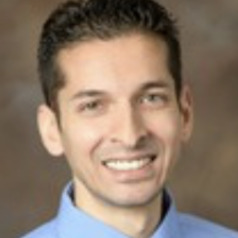
Asad Patanwala
Professor, Sydney School of Pharmacy, University of Sydney
Professor Patanwala is Chair of Clinical Pharmacy and is jointly based at the University of Sydney School of Pharmacy and the Royal Prince Alfred Hospital (RPAH). He is a registered pharmacist in both the United States and Australia and is a Board Certified Critical Care Pharmacist (BCCCP). His research interests include comparative effectiveness of medication use in critical care and emergency medicine. He has been involved in international clinical trials and clinical practice guidelines. He serves on the Clinical Trials Sub-Committee for the Sydney Local Health District and Drug Committee for RPAH. He has published 200+ journal articles and book chapters including those in NEJM, JAMA, Annals of Internal Medicine, Intensive Care Medicine, and Crit Care Med.
Less ![]()

Asanda Mtintsilana
Postdoctoral researcher, University of the Witwatersrand
Asanda Mtintsilana earned her PhD in Paediatrics and Child Health in 2021 from the University of the Witwatersrand, Johannesburg, South Africa. She also holds an MSc (medicine) from the University of Cape Town. She is currently undertaking a postdoctoral training in Public Health and Epidemiology at the South African Medical Research Council/Wits University Developmental Pathways for Health Research Unit (DPHRU). As part of her training, she is conducting research on diverse topics that affect human health and development, including HIV, food insecurity, social vulnerability, and mental health. She also investigates risk factors and putative biological mechanisms implicated in the development of non-communicable diseases such as obesity and type 2 diabetes in vulnerable groups, especially Black South African women.
Less ![]()
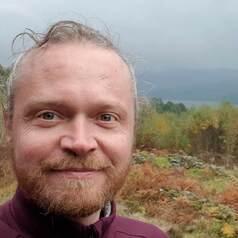
Ascelin Gordon
Senior research fellow, RMIT University
I originally studied physics completing a PhD in particle physics at the University of Melbourne. My research focuses on developing quantitative and qualitative approaches for understanding the impacts of environmental policies and programs on biodiversity values in the landscape. I have has undertaken extensive research on biodiversity offsetting, conservation planning, spatial prioritization and conservation on private land as well the application of machine learning approaches to support conservation and land-use policy.
Less ![]()
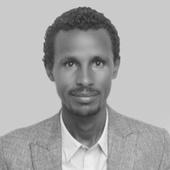
Asebe Regassa Debelo
Senior research and teaching fellow, Department of Geography, University of Zurich
Less ![]()

Asfawossen Asrat
Professor, Addis Ababa University
Prof. Asfawossen Asrat Kassaye is currently Professor of Geology at the School of Earth Sciences and Engineering of the Botswana International University of Science and Technology in Botswana (BIUST). He has served the Addis Ababa University (AAU) from the rank of Graduate Assistant to Full Professor during the 1993-2021 period. He is a Fellow of the African Academy of Sciences (FAAS), Ethiopian Academy of Sciences (FEAS), and was Young Affiliate of the World Academy of Sciences, TWAS (2012-2017). He received his PhD from the University of Henri Poincare, Nancy (France) in Geochemistry and Petrology in 2002. He has been actively engaged in teaching both at postgraduate and undergraduate programs. He has been actively engaged in both fundamental and applied research and has completed several research projects funded by the National Science Foundation (USA), Natural Environmental Research Council, and the Royal Society (UK), Collaborative Research Center (Germany), Addis Ababa University and Ministry of Sciences and Technology (Ethiopia), among others; has authored/co-authored about 135 peer-reviewed publications in a wide variety of the Earth Sciences fields including on Paleoclimatology-Paleoenvironment, Quaternary Geology, Petrology-Geochemistry in high impact journals including Nature, Nature Geosciences, Nature Climate Change, Nature Communications, Proceedings of the National Academy of Sciences (PNAS), Geology, Scientific Reports, Quaternary Science Reviews, Journal of Petrology, Geochimica Cosmochimica Acta, Journal of Quaternary Sciences, Quaternary International, Quaternary Geochronology, and The Holocene. He has also authored 2 textbooks, and one popular book entitled “Geotourism in Ethiopia”. He has supervised/is supervising more than 50 Masters and 8 PhD Theses projects. He is actively engaged in professional activities as a member and leader of many national and international professional associations, and has served as the Vice President of the Geological Society of Africa (2008-2016), founding member and President of the Eastern Africa Quaternary Research Association (2013-2017); member of the Executive Committee of the International Association of Geomorphologists (2013-2017); member of the Scientific Steering Committee of the Past Global Changes (PAGES) (2016-2021); and member of the UNESCO Global Geoparks Council (2016-2022). He served as an Associate Editor of Quaternary International (2015-2018) and is currently Co-Editor-in-Cheif of Earth-Science Reviews and Editor of Scientific African, Associate Editor of Zeitschrift für Geomorphologie (Annals of Geomorphology) and Geoheritage. He has reviewed several research articles in various journals (such as Nature Communications, Scientific Reports, QSR, Sedimentology) and has Guest edited special issues of the Journal of African Earth Sciences, Quaternary International, Annals of Geomorphology and Quaestiones Geographicae. He is actively engaged in outreach activities and community services. He consulted several development, construction, engineering and mining firms as well as government institutions. In addition to his active teaching, research, professional, community and outreach services, he has served BIUST and the AAU in various academic administration positions including as Head of Department, Mining and Geological Engineering, BIUST (2023-Present); and Academic Programs Officer (2004-2006), Associate Vice President for Academic Affairs (2006-2008), and Chief Academic Officer for Research (2011-2012), all in AAU.
Less ![]()
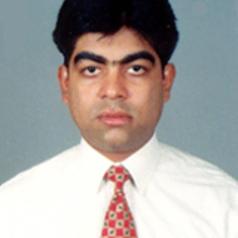
Asgar Ali
Professor of Post-harvest Biotechnology & Nutrition and Director, Centre of Excellence for Post-harvest Biotechnology (CEPB), University of Nottingham
Currently a professor in post-harvest physiology and technology at the University of Nottingham Malaysia Campus, Prof Asgar is the founding director of the Centre of Excellence for Post-harvest Biotechnology. With a range of students under his guidance and supervision, Prof Asgar has laid the groundwork for pioneering and innovative research in the field of edible coatings and films for post-harvest biology. Additionally, he is involved in the progress of science within post-harvest biology as an associate editor of the Journal of Horticultural Science and Biotechnology and a member of the editorial advisory board of the Asian Journal of Microbiology, Biotechnology and Environmental Sciences.
His experience spans from the physiology and biochemistry of fruits and vegetables to the field of post-harvest technology. Primarily the isolation and characterisation of bioactive compounds extracted from fruits and vegetables as well as their effect on human health and well-being. Additionally, the analysis of physico-chemical and sensory characteristics of fruits, vegetables and flowers. Expertise in post-harvest quality and shelf-life of fruits and vegetables.
Less ![]()
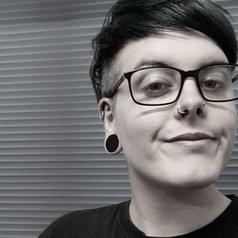
Ash Barnes
Assistant researcher, University of Tasmania
Dr. Ash Barnes is a researcher for the department of Social Sciences at The University of Tasmania and at The University of Melbourne.
Ash's main work examines community perceptions of harm and pleasure, attitudes towards drugs and the impact of sexual and physical violence in music venues and cultures.
They have worked in a range of projects which have direct, positive impacts to the community such as to law reform, LGBTIQA+ health services, sexual assault services, and alcohol and other drug policy.
Less ![]()
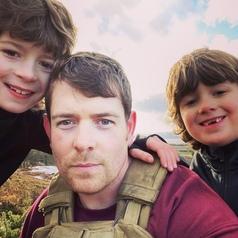
Ash Cox
Lecturer in Youth Physical Activity and Physical Education, Edge Hill University
For the last two years I have held a role at Edge Hill University on the Physical Education and School Sport Programme. My expertise centres around the application of muscular fitness activity for children and young people, with a focus on the school environment as a vehicle for delivery.
Less ![]()
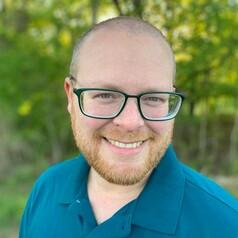
Asher Lubotzky
PhD Candidate, History, Indiana University
Asher Lubotzky is a doctoral candidate for in the Department of History at Indiana University. His research focus is settler colonialism, apartheid, and decolonization in Southern Africa, as well as Africa-Israel relations, past and present. His Ph.D. dissertation explores the complex early relationship between the State of Israel and Southern Africa (1948-1976) as well as the different interpretations of Zionism among South Africans. He has also written about the Herero and Nama Genocide (1904-1907) in German Southwest Africa (Namibia). Asher is the recipient of the Gerda Henkel PhD Scholarship for 2021-2023. He has an MA in History from Bar Ilan University and a BA in Middle Eastern History and Philosophy from the University of Haifa.
Less ![]()
- Market Data























